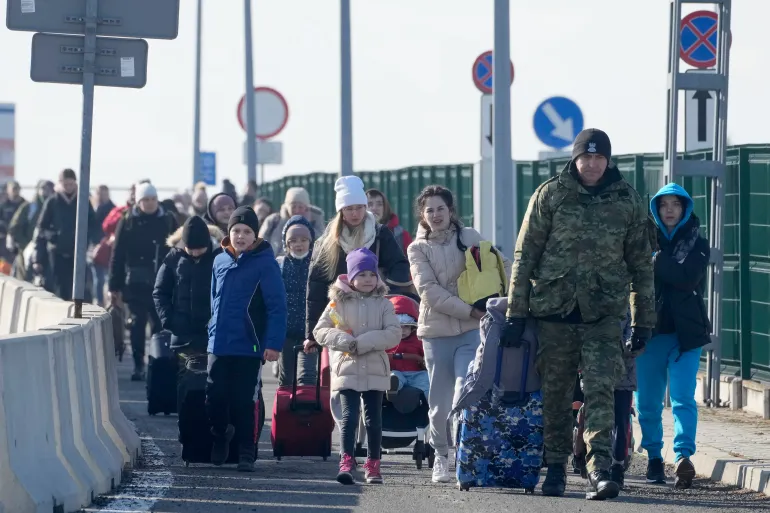
Refugees entering Europe are getting tougher: The European Union (EU) has finally reached consensus on reforming a common refugee policy. The interior ministers of the 27 countries of the alliance reached this decision at a meeting in Luxembourg on Thursday. EU Migration Commissioner Eva Johansson described it as a “historic” move.
Johansson said that if the EU countries work together from now on, the problem of refugees coming to Europe can be dealt with in a humane but tough way. It will benefit all member countries. Even though the uniform refugee policy has been around for so long, it was almost useless before. Keeping those issues in mind, the EU has reformed its refugee policy.
Three main points of reform policy:
One, if a refugee requests political asylum (asylum seeker) at the border or airport of one of the EU countries, the asylum seeker will be held in a border asylum camp for 12 weeks. The application of the political asylum seeker will be scrutinized by keeping him in the asylum camp whether he is eligible for political asylum or not.
The second issue is that if a political asylum seeker comes from a third country rather than coming directly from his own country to the country seeking asylum, he will be sent back to the third country.
And the third thing is that the arrangements for keeping refugees will be made considering the ratio of the population of the European Union countries. That is, according to the population, it will be decided how many refugees will be in which country.
All but the first of the reform policies were effective. However, some other countries including Poland and Hungary in Eastern Europe did not take it into account. Muslim refugees were also reluctant to accept. Under the new policy, if a legitimate political asylum seeker is sent to another country without asylum, the country that did not grant asylum will have to pay the asylum country 20,000 euros per person.
If the new reform policy, adopted by EU interior ministers in Luxembourg, becomes law, citizens of countries that are not in political trouble, civil war or war in the eyes of the European Union will not be eligible as political asylum seekers. In this case, they will be sent back to a third country or the asylum seeker’s country within 12 weeks after being kept in an asylum camp in a country.
Although Johansson called it a historic step, German Interior Minister Nancy Fesser expressed doubts as to whether the deal was actually a ‘historic step’. Nancy said, ‘Even if he agrees to this policy, it will take time to understand whether the problem is resolved satisfactorily.’
German Interior Minister Nancy Fesser also said her proposal not to decide on asylum seekers under the age of 18 in border refugee camps was not accepted. He said that the German government agreed to this new issue, but other member countries did not support it.
According to the United Nations refugee agency, more than 50,000 migrants crossing the Mediterranean illegally have registered in Italy this year. Most of them are from Tunisia, Egypt and Bangladesh. However, they are unlikely to legally reside in Europe.
German organizations on migration and refugees have criticized the stricter policy on the entry of refugees into Europe. German immigration researcher Maximilian Piechl said, “Germany has decided to isolate refugees with the consent of other countries.” By doing this, their right to asylum will be preserved only on paper. He criticized this policy.
However, the new reform policy adopted at a meeting of EU interior ministers in Luxembourg will require the approval of the European Parliament to become law.